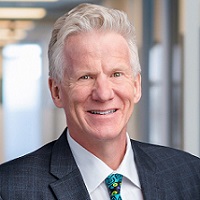 By Nick van Terheyden aka Dr Nick, Principal, ECG Management Consulting
By Nick van Terheyden aka Dr Nick, Principal, ECG Management Consulting
Twitter: @drnic1
Host of Healthcare Upside Down – #HCupsidedown
What exactly is ChatGPT? Chances are you’ve at least heard the term, given the attention it’s garnered in the media recently, but do you know what it is or what it even stands for?
The “chat” part is the chatbot, or the interface through which we interact with the technology. “GPT” stands for generative pre-trained transformer, which is a text-generation, deep-learning model trained on available data.
Episode NOW on Demand
ChatGPT is founded on technology that has been in use in speech recognition for many years—natural language processing (NLP), which allows a computer to process text and “understand” its meaning. We have made some amazing progress and discoveries in this area over the last several decades, and the key has been the use of large amounts of data that create and feed these models.
This progress suggests we are heading toward an interesting future where technology can help with questions and answers, text summarization, programming code generation, and even conversations. In the case of complex areas like healthcare, there are exciting opportunities to explore.
Of course, there’s also no shortage of controversy surrounding ChatGPT, from students using it to write essays to fears that employers will use the technology to replace workers (not to mention the possibility that AI will eventually become so sophisticated that it will achieve self-awareness, perceive its makers as a threat, and wipe out humanity).
“We are not at a point; we are at a trajectory,” says John Nosta, founder and president of NostaLab, a technology think tank. “The early moments of GPT are fraught with problems, like every single technology I’ve ever seen. The early days of flight were catastrophic. The early days of driverless cars were not good. We are at that point. You can cling to the negative or you can plot a trajectory.”
John joins me on this episode where he describes ChatGPT within the broader context of human innovation and talks about the potential of AI to improve the way we deliver healthcare. Below are a few excerpts.
GPT is here to stay.
“I think the use of GPT and AI in our lives is no longer an option—it’s an imperative. And it’s not going away. The reality is that we have to change around technology, not change technology around humanity. How do we accommodate technology? Because we really do live in a techno-centric world; and in medicine, that’s completely the case. When we go to an optometrist, our choice of lenses is completely technologically mediated. And I think we’re seeing that more and more. So with respect to GPT, the toothpaste is out of the tube, and it’s not going back in.”
A duality of wonder and fear.
“Newton taught us that for every action, there’s an equal and opposite reaction. There’s always a push and a pull. So let’s talk about this in the context of our first technology. Just for the sake of argument, let’s say that fire is our first technology. Fire was an amazing thing. It was a tool that we used to stay up late, to heat our homes, to migrate, to eat protein that grew our brains; fire was really transformative. It also became a very, very powerful weapon. Even today, fire has that same duality of wonder and fear. My kids are amazed when we sit around the campfire. But one of the leading causes of property damage and destruction in the world today is fire. So I don’t think it’s appropriate to think about the risk as completely going away.”
GPT in healthcare.
“I believe we can use GPT to craft educational material that can be tuned to the interests and intellect of the individual. So when I leave my doctor on a statin, or whatever it may be, the office staff can print out a customized patient education sheet for me that is uniquely suited to my background in electrical engineering. I will appreciate it, and it’ll resonate with me. And let’s say, a chef—we can write it almost instantly in that context. These are not difficult tasks. I think that we can customize patient education, even physician education, by using language that resonates with us.”
This article was originally published on the ECG Management Consulting blog and is republished here with permission.
About the Show
The US spends more on healthcare per capita than any other country on the planet. So why don’t we have superior outcomes? Why haven’t the principles of capitalism prevailed? And why do American consumers have so much trouble accessing and paying for healthcare? Dive into these and other issues on Healthcare Upside/Down with ECG principal Dr. Nick van Terheyden and guest panelists as they discuss the upsides and downsides of healthcare in the US, and how to make the system work for everyone.
Tune in weekdays at 9am, 5pm, and 1am ET.
Join the conversation on Twitter at #HCupsidedown.
